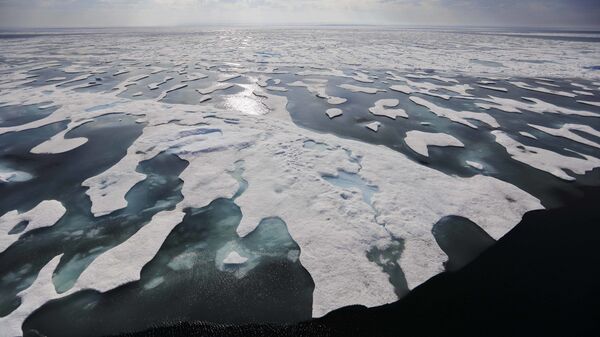The study, led by scientists at Singapore’s Nanyang Technological University (NTU), was based on projections by more than 100 international experts on global sea-level changes under two climate scenarios.
In the first scenario, in which global warming is limited to 2 degrees Celsius above pre-industrial levels, experts predict a rise of 0.5 meters by 2100 and 0.5 to 2 meters by 2300. In the second scenario, in which Earth sees 4.5 degrees of warming by 2100, sea levels could increase by 0.6 to 1.3 meters by 2100 and 1.7 to 5.6 meters by 2300.
According to Benjamin Horton, acting chair of NTU's Asian School of the Environment, sea-level rise projections are necessary to make educated mitigation decisions.
“The complexity of sea-level projections, and the sheer amount of relevant scientific publications, make it difficult for policymakers to get an overview of the state of the science,” Horton told Phys.org. “To obtain this overview, it is useful to survey leading experts on the expected sea-level rise, which provides a broader picture of future scenarios and informs policy makers so they can prepare necessary measures.”
Andra Garner, co-author and assistant professor of environmental science at Rowan University in New Jersey further noted to the outlet that the Earth will by all means experience a sea-level rise.
“But there are stark differences in the amount of sea-level rise experts project for low emissions compared to high emissions,” she said. “This provides a great deal of hope for the future, as well as a strong motivation to act now to avoid the more severe impacts of rising sea levels."
The NTU-led study was completed with help from researchers at the University of Hong Kong, Maynooth University, Durham University, Rowan University, Tufts University and the Potsdam Institute for Climate Impact Research.
Many studies in recent months have predicted rising sea levels due to climate change. A March analysis by the Ice Sheet Mass Balance Intercomparison Exercise (IMBIE), an international collaboration of polar scientists, found that polar ice caps in Greenland and Antarctica are melting six times faster than they were in the 1990s.
Another study published in November 2019 by an international team of scientists in the Proceedings of the National Academy of Sciences also found that even if all the countries that are part of the Paris Climate Agreement hit their 2030 emissions targets, sea levels could still rise by about 3 feet by the year 2300.
Meanwhile, the United Nations’ World Meteorological Organization revealed in early December that the past decade was the hottest in recorded history.

